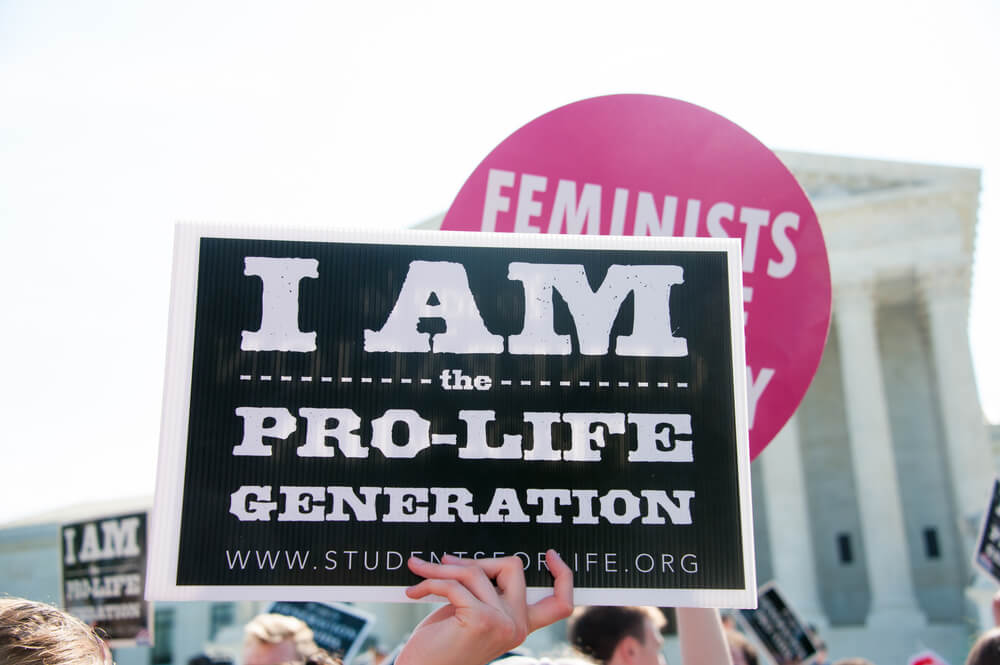Today, thousands of people are gathered in Washington, DC to be a voice for the voiceless and call for an end to legalized abortion in America. The March for Life began in 1974, the year after the Supreme Court’s Roe vs. Wade decision that legalized abortion in America, and has drawn tens and even hundreds of thousands of people each year.
So why does the March for Life matter? Msgr. James P. Shea, president of the University of Mary, stopped by Morning Air® this week to share the impact that the March for Life has had on his students.
Something that is hard to miss about the March for Life is how many young people participate. Msgr. Shea shared how inspiring it is for him, saying, “It’s an extraordinary thing to see young hearts rise up in the fight for justice for those who have no voice. And so the love that these young people have for unborn children, for children who are voiceless. But not only for the unborn children, but for their mothers as well, for everybody who faces a crisis pregnancy, everybody who’s in a difficult situation. The deep compassion that runs through the representatives of this generation is very uplifting to me.”
People come from near and far to attend the March for Life. In fact, for the students of the University of Mary it is a 3,000+ mile round trip! But Msgr. Shea said that despite the challenges, it is always worth it.
“They traveled 60 hours on a bus round trip,” he said of his students. “One of the reasons that we’re so eager to bring such a large group from so far away to our nation’s capital, is because when you’re at the March for Life you have an irreplaceable opportunity to recognize that in your deep pro-life convictions, in the love that you have for unborn children, for their mothers, for the cause of life, that you’re not alone.”
Msgr. Shea emphasized that there is something unique and powerful about thousands and thousands of people gathering in the same place for the same cause. He shared an experience that he had a few years ago at the March that has stayed with him all these years later.
“I remember when we were leading the March for Life, you begin at the Rally for Life … and then we all march up Constitution Avenue. There’s a place before you reach the Supreme Court where the road kind of rises. And as a result, there’s just something in the angle of the street at that point where you can turn around and you can look and you can see tens of thousands of people swelling the streets behind you. Then you realize, you begin to catch a glimpse, I think, of reality as it really is.”
“Sometimes the cause of God and the Gospel seem like they’re so weak in a world which is hostile to truth, to goodness, to beauty. And in a moment like that you you realize that it’s not weak, that God has power, and has friends that are limitless in number.”
While the hope of everyone participating in the March for Life is that there would be no need for future marches – because abortion would no longer be legal – the March for Life matters because it is an opportunity to join together in the celebration and defense of life, and offer hope for future generations.
“I would say that [the March for Life] gives our whole nation an opportunity to stand for life,” said Msgr. Shea. “Every faithful believer from sea to shining sea should be joining in prayer, and in fasting, to end abortion in our land. And more deeply than that, for the establishment as a culture of life, and a civilization of love. That’s our deepest hope. That’s what we work for. That’s what we march for.”
Listen to the full conversation with Msgr. James Shea below:
Morning Air can be heard weekdays from 6:00 – 9:00 a.m. Eastern/3:00 – 6:00 a.m. Pacific on Relevant Radio® and the Relevant Radio App.


